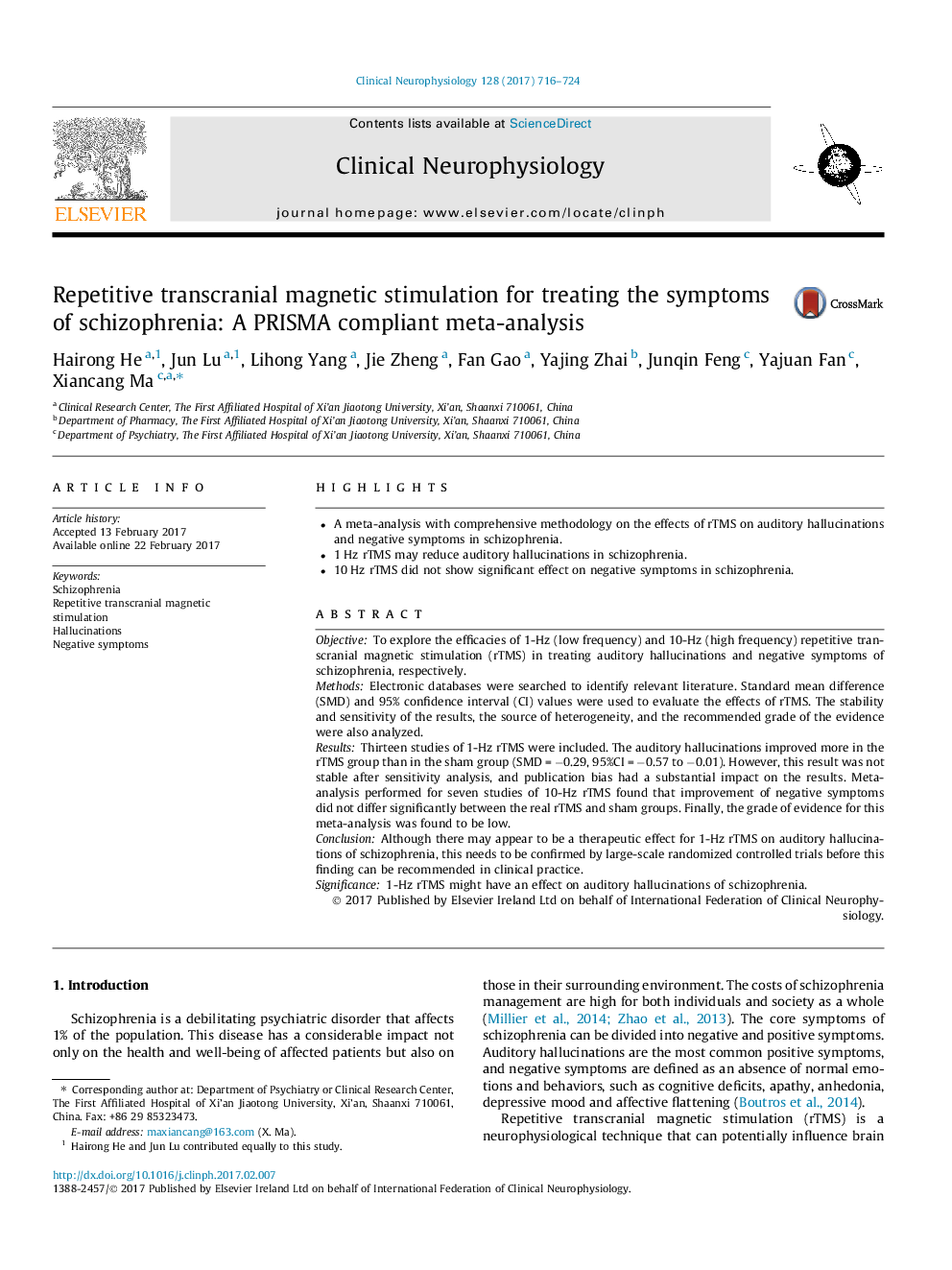| Article ID | Journal | Published Year | Pages | File Type |
|---|---|---|---|---|
| 5627683 | Clinical Neurophysiology | 2017 | 9 Pages |
â¢A meta-analysis with comprehensive methodology on the effects of rTMS on auditory hallucinations and negative symptoms in schizophrenia.â¢1 Hz rTMS may reduce auditory hallucinations in schizophrenia.â¢10 Hz rTMS did not show significant effect on negative symptoms in schizophrenia.
ObjectiveTo explore the efficacies of 1-Hz (low frequency) and 10-Hz (high frequency) repetitive transcranial magnetic stimulation (rTMS) in treating auditory hallucinations and negative symptoms of schizophrenia, respectively.MethodsElectronic databases were searched to identify relevant literature. Standard mean difference (SMD) and 95% confidence interval (CI) values were used to evaluate the effects of rTMS. The stability and sensitivity of the results, the source of heterogeneity, and the recommended grade of the evidence were also analyzed.ResultsThirteen studies of 1-Hz rTMS were included. The auditory hallucinations improved more in the rTMS group than in the sham group (SMDÂ =Â â0.29, 95%CIÂ =Â â0.57 to â0.01). However, this result was not stable after sensitivity analysis, and publication bias had a substantial impact on the results. Meta-analysis performed for seven studies of 10-Hz rTMS found that improvement of negative symptoms did not differ significantly between the real rTMS and sham groups. Finally, the grade of evidence for this meta-analysis was found to be low.ConclusionAlthough there may appear to be a therapeutic effect for 1-Hz rTMS on auditory hallucinations of schizophrenia, this needs to be confirmed by large-scale randomized controlled trials before this finding can be recommended in clinical practice.Significance1-Hz rTMS might have an effect on auditory hallucinations of schizophrenia.
